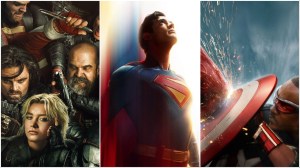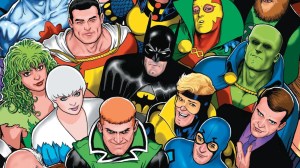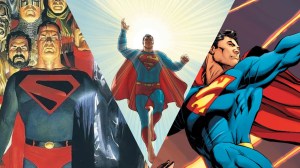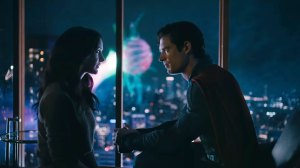Today, June 14, 2019, marks the six-year anniversary of the release of Man of Steel in theaters. Zack Snyder’s Superman reboot was the very first chapter in the DC Extended Universe franchise – a franchise which ultimately never fulfilled the potential it started with, and has ultimately gone nowhere.
Videos by ComicBook.com
However, even though the DCEU saga that Snyder envisioned never came to fruition, it doesn’t change the fact that Man of Steel is a milestone superhero movie that continues to hold a place of reverence in the hearts and minds of so many DC Comics fans. Despite all of the obvious controversy and debate that hangs over it to this day, Man of Steel is a great Superman movie – possibly one of the best Superman stories ever told.We here at Comicbook.com (specifically this writer) have made the argument for why Man of Steel is a great and often underrated film many times before. You can check out the full breakdown of the film and its various parts by clicking the link above – but for the quick version, let’s look back over Man of Steel from the span of six years removed, to see why this modern Superman origin story holds up so well.
In an era where being “woke” about the plights of the oppressed, or underrepresented communities of the world, is now a sweeping social trend, it’s hard to ignore the feat that Zack Snyder accomplished back in the early 2010s. With Man of Steel, Snyder took the Superman metaphor and reworked it entirely; instead of echoing the kind of “classic American” nostalgia that would make the MAGA crowd happy, Snyder took the bold approach of making the story of Clark Kent/Superman a metaphor for minority groups of all kinds – including the immigrant and LGBTQ communities that are now at the heart of modern social-progression campaigns. Never before had fans seen Clark Kent’s childhood from the perspective of being “closeted” or repressive in such a way, and the hero’s journey of self-discovery and finding his place in the modern world meant so much to those in society struggling with those same issues of identity and placement. Suddenly, “Superman” was an ideal achievable by anyone, not just those who fit the classic mold of “All-American” ideals. That transition was incredibly important – and it’s often those who were effectively ‘brought into the tent’ by Snyder’s re-imagining, who have been the most vocal about appreciating Man of Steel in the years since its release.
While it’s true that Man of Steel courted some controversy for divisive storytelling decisions (Pa Kent’s death, Superman’s killing of Zod), it’s important to note just how long, and passionately, these divisive moments have been debated in the six years since the film’s release. For comparison, you don’t hear many impassioned defenses of Batman v Superman‘s infamous “Martha Moment” – but you do hear fans debating why Kevin Costner’s Jonathan Kent allowed himself to die (instead of Clark saving him); or why Superman killing Zod was a necessary part of the character’s evolution into a more wholesome hero. No matter how you feel about the decisions Snyder made with his version of Superman (one way or another), you have to admit that Man of Steel has provoked more discussion about the hero’s character and mythos than just about any other modern Superman story that’s come along. For some fans, that debate has reaffirmed why the classic version of Superman is so beloved; for other fans, Snyder introduced a much more complicated version of the hero that was needed for modern times. The fact that these two sides feel equally passionate about the matter, proves that Snyder made something artistically significant with his film, love it or hate it.
Finally, Snyder re-invented aspects of the Superman mythos in ways we’ve never seen, from his relationship with Lois, to the limitations of his power, to the entire backstory and mythos of Krypton and its people. These changes weren’t all frivolous: the mythos that Snyder established provided foundation for the entire DCEU to be built on. From the existence of Bruce Wayne/Batman andLex Luthor before their debut in Batman v Superman, to the first threads of what we now see would’ve been an epic arc of Superman dying at Doomsday’s hands, and being reborn as the classic version of himself, in order to help the Justice League beat the threat of Darkseid and Apokolips. Man of Steel sowed all the seeds of the DCEU that Snyder wanted to grow – if only he had the chance.
Man of Steel still remains one of my favorite superhero movies of all time – how about you? Let us know in the comments!
Shazam is now in theaters, Joker hits theaters on October 4th, Birds of Preyon February 7, 2020, Wonder Woman 1984 on June 5, 2020, and The Batman on June 25, 2021.





